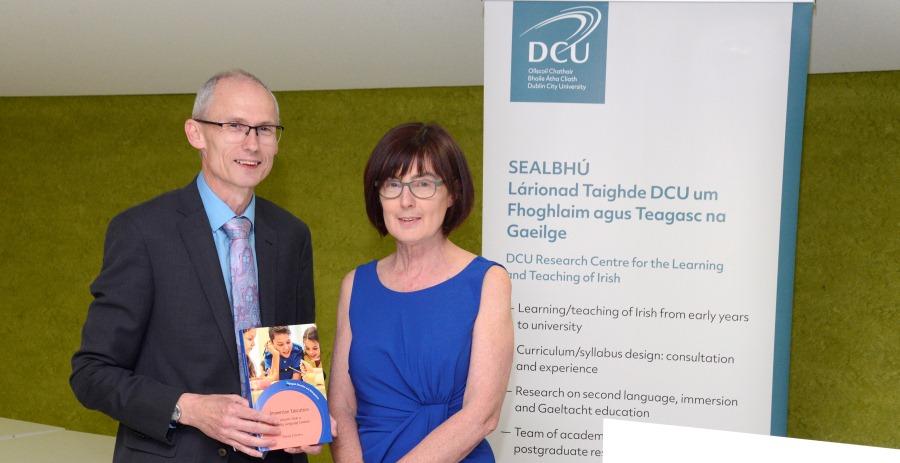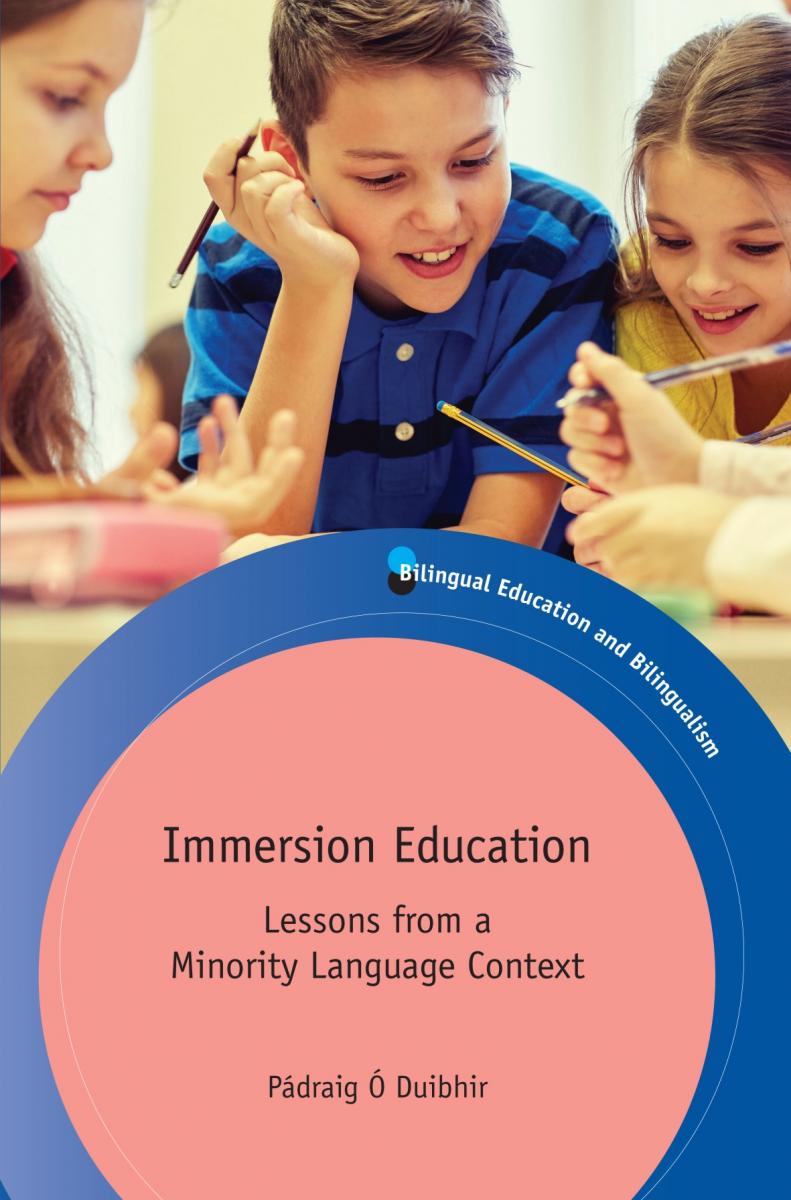

Second Language Competence
When Second Language Competence is Not Enough: The Case of Minority Languages
This month sees the publication of Immersion Education by Pádraig Ó Duibhir, which examines the success of young immersion learners of Irish in becoming competent speakers of the minority language. In this post the author explains why further efforts need to be made to promote the wider use of Irish outside Irish-medium education.
The book was launched in the DCU Institute of Education, St Patrick’s Campus, Drumcondra on Thursday 7th June by Muireann Ní Mhóráin, Príomhfheidhmeanach na Chomhairle um Oideachais Gaeltachta agus Gaelscolaíochta.

We devote a great deal of time and effort in second language teaching to ensure that learners reach the highest level of competence possible in the second language. Sometimes, however, competence is not enough, as in the case of Irish, a minority language in contact with English – one of the world’s major languages.
I have spent most of my career either teaching or researching Irish-medium education. In general, students who graduate from Irish-medium schools have developed excellent oral communication skills in Irish despite some grammatical inaccuracies. One might expect these young adults to contribute to the wider use of Irish in society. Unfortunately, this is not always the case despite government policy in this area. While some do use more Irish than their counterparts who went to English-medium schools, the level of use is disappointing.
As a parent who raised three children, now in their late 20s, through the medium of Irish, I can attest to the lack of opportunities to use the language outside the home and school contexts. None of my adult children work in a job that brings them into contact with Irish and apart from their communication with me, they have very few opportunities to speak Irish. When the children were younger, they attended Irish-medium schools. When their friends from school visited our house, however, I was always struck by the fact that their conversation was in English. If I engaged them in conversation they would happily speak Irish to me but return to conversing in English once I had left. Speaking Irish to me appeared to be normal, perhaps because they saw me as an authority figure or knew that Irish was the language of our home. But speaking Irish among themselves outside of school was not normal.
So much of the Irish government’s efforts to promote the wider use of Irish are invested in the education system. We know from experience, however, that transferring minority language learning from school to society is extremely difficult. How then might we create safe spaces where it is normal to speak Irish? Could we build Irish-speaking networks around Irish-medium schools? What can we learn from other minority language contexts? The advent of pop-up Gaeltachtaí or Irish-speaking social events is a very positive development. How might we capitalise on and expand this concept where participants have a clear desire to speak Irish? In the absence of greater opportunities and a desire to speak Irish, competence alone is not enough.
For more information about this book please see the Multilingual Matters website. The book is available to purchase a greatly discounted price of €30 until the end of June 2018 by entering the ODUIBHIR75 at the checkout when paying.
Ó Duibhir, P. (2018). Immersion education: Lessons from a minority language context. Bristol: Multilingual Matters.
